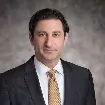- within Environment topic(s)
On June 16, the U.S. Supreme Court issued its decision in Universal Health Services, Inc. v. United States ex rel. Escobar, resolving a long-standing split among the circuits regarding application of an "implied certification" theory of liability under the False Claims Act. As expected, the Court held that the implied certification theory is a valid theory of liability, thus expanding the scope of potential liability in those few courts that had previously rejected the theory. But the Court's opinion also narrowly limited the implied certification theory, perhaps even more than most commentators and observers had anticipated. In a unanimous opinion authored by Justice Thomas, the Court held that "liability can attach when the defendant submits a claim for payment that makes specific representations about the goods or services provided, but knowingly fails to disclose the defendant's noncompliance with a statutory, regulatory, or contractual requirement." Under today's decision, the government can recover under the implied certification theory only if "the defendant knowingly violated a requirement that the defendant knows is material to the Government's payment decision." The Court went on to explain what it described as the "rigorous" materiality requirement and how it should be enforced.
The implied certification theory of liability has been widely criticized among the defense bar for creating too much uncertainty for government contractors and others who present claims for payment to the government. While the Supreme Court adopted the controversial theory, it also went to significant lengths to cabin the theory as a basis for liability. The Court limited the implied certification theory to situations in which the defendant has (1) made specific representations about goods or services provided to the government; and (2) acted with knowledge (which the False Claims Act defines to include both actual knowledge and reckless disregard) that it violated a material statutory, regulatory, or contractual provision, meaning that it likely would have affected the government's willingness to pay the claim had the government known about the violation.
The decision should provide some comfort to government contractors and participants in government programs that violation of any technical statutory, regulatory, or contractual condition of payment will not necessarily lead to False Claims Act liability. The Court's reasoning is also likely to reinforce the importance of materiality as a critical point on which to contest liability in many False Claims Act cases. At the same time, however, by articulating a new standard for implied certification cases in broad strokes, the Court has left to the lower courts the task of working out details in its application.
Background
The False Claims Act ("FCA") penalizes contractors that "knowingly present[], or cause[] to be presented, a false or fraudulent claim for payment or approval" to the government. What it means for a claim to be "false or fraudulent" is a hotly contested question. At the center of the controversy is the "implied certification theory." According to this theory, when contractors make claims for payment to the government, they implicitly certify that they have complied with all regulations, or, under particular versions of the theory, some limited set of regulations. Under the implied certification theory, if the contractor violated these regulations, then the contractor has made a "false or fraudulent" claim because the "implied certification" that it complied with those regulations is not true. If these violations are "knowing," then the contractor has violated the FCA, even if it complied with all the terms of the contract. This subjects contractors to treble damages plus an additional civil penalty for every violation.
Until today, only lower courts had weighed in on whether the FCA supports the implied certification theory, with the Supreme Court remaining silent. The majority of Circuit Courts to address the issue -- the Courts of Appeals for the Second, Third, Sixth, Ninth, and Tenth Circuits -- held that the FCA supports a version of the implied certification theory that limits the set of implied certifications to those on the basis of which the government explicitly conditions payment. In other words, the FCA deems contractors to implicitly certify their compliance only with regulations about which the government says, "This regulation is so important to us that, if you violate it, then we won't pay you." Two Circuit Courts -- the Courts of Appeals for the District of Columbia and Eleventh Circuits -- adopted a more expansive version of the theory, allowing claims for implied certification for violations of express or implied conditions of payment or conditions of participation in a government program. The Seventh Circuit rejected the theory of implied certification entirely.
In the decision the Supreme Court decided to review, the Court of Appeals for the First Circuit also interpreted the FCA to support the implied certification theory. According to the First Circuit, FCA liability exists when the contractor "knowingly misrepresented compliance with a material precondition of payment," where the conditions need not be "expressly designated." In other words, if a contractor knows (which, under the FCA, includes willful ignorance or reckless disregard for the truth) that violating a particular regulation would influence the government's decision to pay or provide a basis for refusing payment, then violating that regulation gives rise to FCA liability, whether or not the government specifies the regulation in advance.
The Escobar Case
The Escobar case itself involved a tragic set of facts. The defendant, Universal Health Services ("UHS"), owned and operated a mental health services provider in Massachusetts and contracted with the state Medicaid program, Massachusetts Health. UHS violated various Massachusetts Health regulations concerning the qualifications and supervision of staff members, and also misrepresented some staff members' qualifications (or lack thereof) to patients. A teenage girl received counseling services at one of UHS's satellite mental health facilities, where a purported doctor prescribed her medication for a bipolar disorder. The patient suffered multiple seizures and eventually died. After the patient's parents learned that only one of the five professionals who treated their daughter was properly licensed, they brought an action under the False Claims Act as qui tam relators.
The district court granted UHS's motion to dismiss, holding that the regulations at issue that UHS violated may have been conditions of participation in the government program, but were not "conditions of payment." The U.S. Court of Appeals for the First Circuit reversed, stating that each time a billing party submits a claim, it implicitly communicates that it conformed with the relevant program requirements.
Today's Decision
The Supreme Court held that the implied certification theory can provide a basis for liability under the False Claims Act. The Court relied on common law definitions of "false" and "fraudulent" -- relevant terms used in the False Claims Act -- to conclude that "half-truths -- representations that state the truth only so far as it goes, while omitting critical qualifying information -- can be actionable misrepresentation."
But the Court also cabined the implied certification theory. It held that the theory can be a basis for liability where two conditions are satisfied: (1) the claim not only requests payment, but also makes specific representations about the goods or services provided and (2) the failure to disclose noncompliance with material statutory, regulatory, or contractual requirements makes those representations misleading half-truths. The Court stated that the misrepresentation about compliance with a statutory, regulatory, or contractual requirement must be "material to the Government's payment decision" in order to be actionable.
With respect to the first condition -- that the defendant made specific representations about the goods or services provided -- UHS used payment codes that corresponded to services rendered by specific categories of professionals. The Court thus did not have occasion to provide much guidance as to the nature or specificity of representations that would satisfy the standard. The Court likewise did not address to what extent a nexus must exist between the specific representations made about the goods or services and the noncompliance with statutory, regulatory, or contractual requirements that forms the basis for liability under the implied certification theory.
With respect to the second condition, the Court described the materiality standard as "rigorous" and "demanding." It explained that the government does not need to expressly designate the contractual, statutory, or regulatory provision as a condition of payment in order for the violation to be material, but also that even when the government does expressly designate the requirement as a condition of payment, that is not alone determinative. The Court further explained that a misrepresentation is not material merely because the government would have the option to decline to pay if it knew of the noncompliance with the statutory, regulatory, or contractual provision. Rather, what matters is "whether the defendant knowingly violated a requirement that the defendant knows is material to the Government's payment decision." In other words, in order to prevail, the government or qui tam relator must show not only that the defendant knowingly failed to disclose a violation of a statutory, regulatory, or contractual requirement, but also that the defendant knew (i.e. had actual or constructive knowledge) that disclosure of the violation would have been likely to affect the government's willingness to pay the claim.
Although the Court did not expressly address the so-called "government knowledge defense" – the oft-asserted argument that the government's awareness of the falsity of a claim negates scienter or materiality -- the Court did explain that the government's knowledge of a violation may be highly probative of materiality. The Court observed that the government's payment of a claim despite its knowledge that the contractor violated requirements would constitute "very strong evidence" that the requirements were not material. Similarly, the Court explained that the government's regular payment of a type of claim despite its knowledge that requirements were violated, absent a signal of a change in position, would be "strong evidence" that the requirements were not material.
Conclusion
The Supreme Court's adoption of the implied certification theory will obviously lead to expanded liability for contractors in those courts that had previously rejected the theory. But the Court did go to significant lengths to cabin the theory through its extensive discussion of the materiality requirement. It may prove difficult for the government or qui tam relators to show that a defendant not only violated a statutory, regulatory, or contractual requirement, but also that the defendant knew that the violation would have affected the government's willingness to pay had it known of the violations.
But for companies that regularly do business with the government or participate in government funded programs, the Escobar decision will leave in place significant risk of future litigation. Indeed, the consequences of such False Claims Act litigation will increase in the near future as the False Claims Act penalties are adjusted significantly for many years of inflation under a recently enacted law. The qui tam relators' bar will likely be undeterred by the Supreme Court's efforts to cabin the implied certification theory, and exactly how lower courts will apply the standards articulated by the Court remains to be seen. Government contractors and participants in government programs thus would be well advised to make legal compliance a priority and make every effort to encourage would-be whistleblowers to report violations internally so that they can be addressed before litigation arises.
The content of this article is intended to provide a general guide to the subject matter. Specialist advice should be sought about your specific circumstances.
[View Source]


